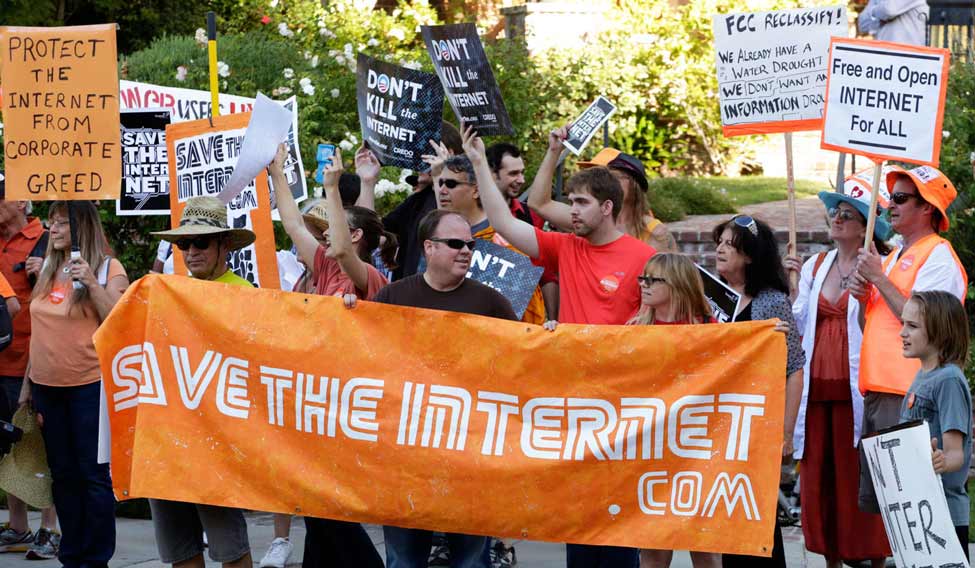Would you be willing to pay Rs 500 extra to access this article on THE WEEK? How would you feel if you could access Facebook for free but would have to pay additional charges to access Twitter? Would you upload your videos on YouTube if you have to pay for it?
What would you do if your telecom provider asked you to purchase a luxury pack to access Netflix, a basic pack to access your emails or an entertainment pack to access social media sites? And the catch would be you would get 50% off if you purchase a pack from Airtel but no discount on other brands.
I might be giving very small scenarios to explain the entire net neutrality issue but the problems the aforementioned situations bring forth are pertinent—that 'net neutrality' is going to change the entire internet scenario.
 Avinash Tiwari
Avinash Tiwari
Net neutrality is again making headlines after Facebook's Free Basics and Airtel's Airtel Zero last year. The issue became a public movement, and India displayed great conviction by taking a pro-net neutrality stand against preferential treatment to some telecom providers. The issue has come up again after the United States Federal Communications Commission (FCC) announced on November 21 that it would repeal regulations to protect net neutrality.
I am sure this move is bound to create huge global repercussions including in India, where the telecom regulator is supposed to frame more regulations on net neutrality in the coming year. I feel repealing net neutrality should not take away my right to surf the internet the way I choose to do it or the brands I would like to go with.
Ajit Pai, the chairman of the Federal Communications Commission, presented a proposal titled Restoring Internet Freedom, where he opined that rolling back of net neutrality would mean that the US government would free itself from micromanaging the internet. I believe Pai has always been against net neutrality and this decision was speculated to happen by experts for sometime now. This proposal as expected has faced a fierce backlash as many believe that it would cause severe damage to business and consumers.
Back home, India's regulatory body, Telecom Regulatory Authority (TRAI), considers itself to be a forerunner in this industry, and it is unlikely that it would be affected by the move. If we go with the current trends, TRAI is keen to move ahead to build on its net neutrality regulations where it has already banned telecom providers from discrimination based on content. It is gradually moving toward creating a pathway to define core principles and regulate the traffic management and violations.
I don't think rolling back net neutrality would be an easy task as there is a long process before any regulation is imposed. The proposal by Pai would be put to vote on 14 December, and even if it gets passed by the FCC, there are other players like Congress and the courts where it needs to get approved.
If a decision is taken in favour of the proposal, it will take away control from consumers and telecom companies will become gatekeepers, allowing the content they like to make fast progress. This will in turn make bigger telecom companies thrive tremendously and smaller companies will lose on the pretext of getting away from micromanagement and fast-paced innovation. pCloudy being a cloud-based mobile app testing platform, I strongly support net neutrality and oppose the FCC's proposal.
Fighting a tough battle in 2016 in favour of net neutrality, India has built a prominent space in the telecom industry and I am sure it will continue to fight against discrimination among internet service providers on the pretext of providing free internet services.
TRAI issued a differential pricing policy by banning the zero rating plans as promoted by Facebook last year, which led to the exit of Facebook's Free Basics service from India. TRAI is now looking at formulating regulations on a wider spectrum on data traffic, preferential content and so forth. If it succeeds in regulating these areas, there would be more clarity on different speeds for various websites and services.
I believe that TRAI's prudence and predictions in this matter helped the country release the rules proactively, and now India has got a great opportunity to bring itself to the leadership position in this space by providing the right regulatory policies that would benefit companies and consumers around the world.
Avinash Tiwari is director of pCloudy, a Bengaluru-based cloud company.
Disclaimer: The views expressed in this article are solely those of the author and do not necessarily represent the views of the publication.





